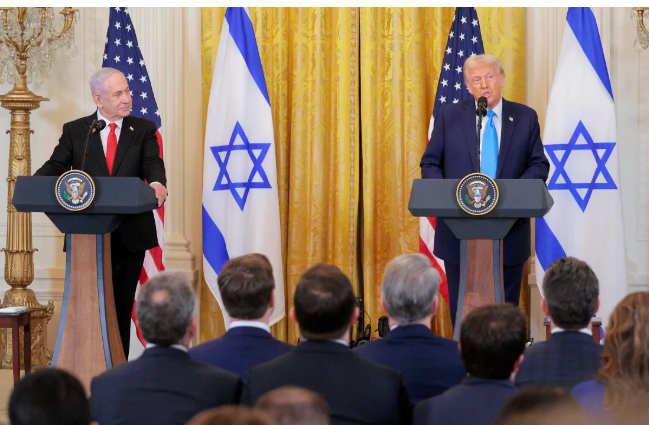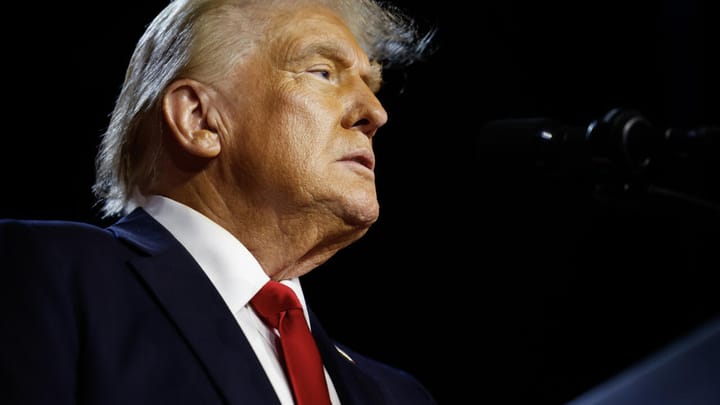Global Stability & Smart Power: Trump Versus Harris
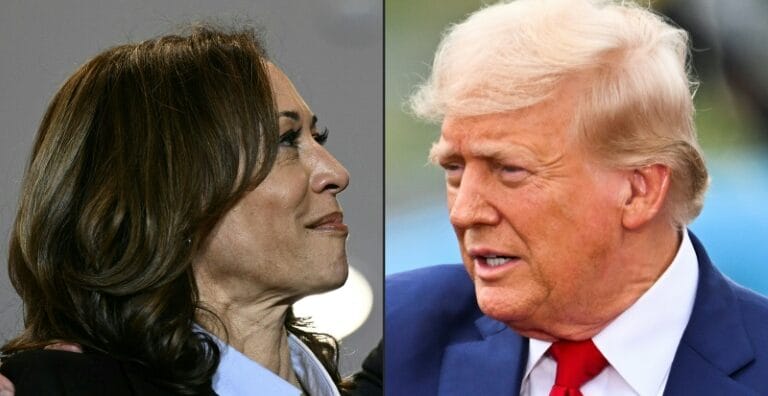
"Our opponents inherited a world of peace and turned it into a planet of war.[1]”
-Donald Trump
The current U.S. presidential election is close. There is a loving Kamala Harris who has a plan for American families and Donald Trump, who ruled for four years with some significant achievements. This article examines Joe Biden's foreign policy and international relations mistakes and how smart power should be invoked by the next US President—Harris or Trump.
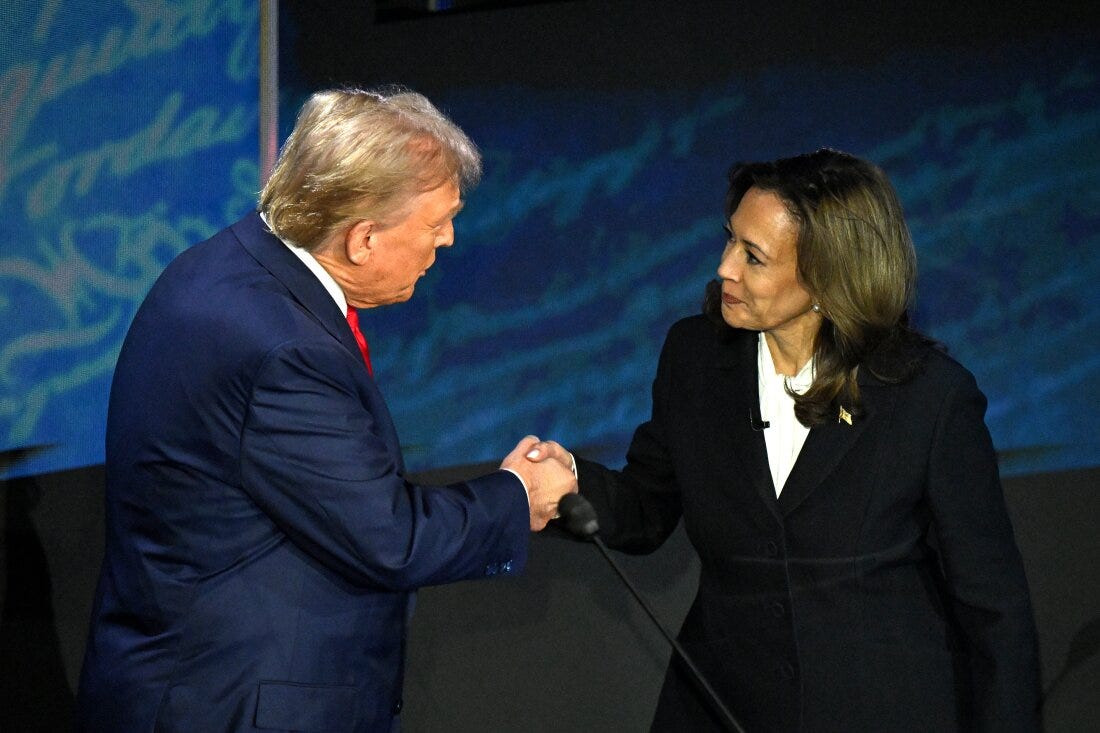
Biden’s Soft Power versus Trump’s Smart Power
At the moment, President Biden is using soft power—the ability to make a country look attractive so that others will adopt its culture. Trump, on the other hand, used smart power, which blended decisive military engagement with the upliftment of states around the world. Ultimately, there were fewer wars and internal uprisings compared to his predecessor and successor.
Joe Biden's over-reliance on soft power has created revulsion and an increasingly unpredictable world.[2]. Other studies have identified that under Biden, the world has had more state-based wars than at any other time since 1946[3]. What this means is that Biden's version of soft power has not been useful, and this has created adverse effects. In most of the wars he presided over, the United States was blamed by both sides for neglecting key issues. As the "leader of the free world," America is expected to rise up to lay the parameters for sociopolitical intercourse around the globe.
Trump is touted as the first U.S. president under whose watch no major new war started. He did quite well in resolving the wars in inherited and, to a large extent, managed to broker peace around the globe. Russia's expansionist tendencies halted under Trump, creating space for the United States to encourage peace and collaboration around the world.
When there is world peace led by the United States, the markets and balance of power around the world flourishes. Strong American leadership brings structure to the different regions of the world, and this contributes to global prosperity. This is the root of smart power.
Biden’s Foreign Policy Failures & Today’s World of Endless Wars
The Biden administration used a series of uncoordinated foreign policy actions that created massive discord and wars. America's withdrawal from Afghanistan was highly problematic. It was done in a manner not fitting of a leading international power.
In the first year or two of Biden's presidency, Angela Merkel led the international order. She brokered peace and did things that a U.S. President conventionally does, including brokering peace between Russia and Ukraine.
The Munich Security Conference held in February 2022, a few days before Russia invaded Ukraine, was decisive. Looking at the cost and damage of this war, Joe Biden should have been personally at the conference to stamp his leadership of the global order and ask Russia NOT to resort to violence. It was the duty of Joe Biden to call Vladimir Putin and tell him to consider other options. That was how things were done in Soviet times. However, Biden used what appears to be a defeatist approach, which ultimately culminated in this war, which put major economies on a path toward recession.
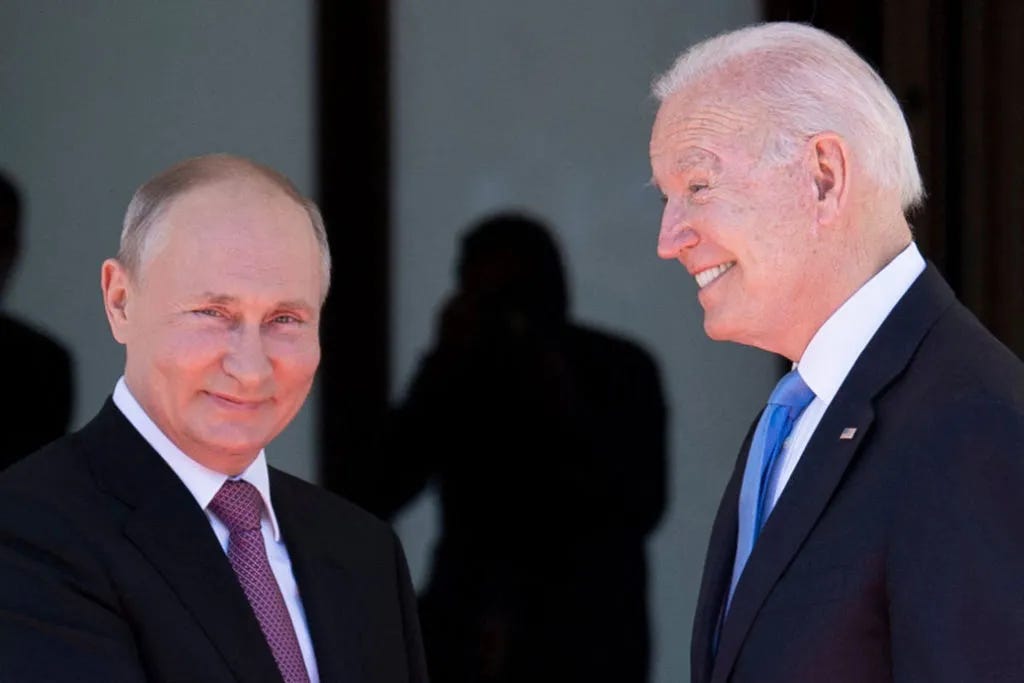
Most of the issues relating to high prices and inflation in the U.S. that are being used against Biden's endorsed candidate today could have been averted if a diplomatic solution was agreed to prevent the Ukrainian invasion.
Furthermore, the Biden administration is complicit in "unleashing" Iran. The soft power ideology they use involves an apparent over-optimistic view of Iran's regime turning around one day to embrace liberal Western democratic values. This is delusional, and if Iran wanted to do that, they would have done it many years ago. Instead, Iran is spreading its ideologies around the region, which is causing instability and wars.
In mid-September 2023, the Iranian regime used an arm-twisting strategy to force the Biden Administration to release some $6 billion of frozen Iranian assets[4]. This happened a few days before the October 7 attacks, which set the entire region ablaze. Did the Iranians feel confident they had a lifeline? Would they have stopped on October 7 if they had no money to look up to? No one can be certain about the answers to these questions.
However, one thing that is beyond reasonable doubt is that Iran has contributed massively to conflicts in the region and beyond that continue to claim lives. They are responsible for granting starving Yemenis ballistic missiles, which they have used to hijack the Red Sea, thereby raising food prices for everyone on the planet.
China’s expansionism has been unhinged under Biden. Hong Kong has been totally forced to live under China's unquestioned domination. Quietly, China has gained extensive leverage in the South China Sea, and any action they take from now till the next U.S. president is inaugurated will most likely go beyond Biden's ability to counter.
Trump’s Promise of Global Stability
Thus far, Trump has stated unequivocally that he will end the war between Russia and Ukraine before he takes office in January 2025. Eight years ago, Trump was talking about repealing Obama's "illegal" executive orders. However, a more mature and serious Trump is now talking about ending a war that has caused serious financial challenges to everyone on the planet.
Trump is also known for his hardline against Iran and the limitation of their destabilizing actions. Trump is not naïve to fall for the manipulations of the Iranian regime. Thus, there is hope of placing some limits on Iran’s Quds Forces’ actions around the Middle East and beyond. More lives and properties will be preserved around the world under a President Trump.
The Peace Through Strength Initiative of Trump is likely to be restored. America will arm its friends around the world to protect themselves and their properties. Imagine how differently the world would be if hostile groups were kept in check by a strong U.S. president. Sadly, some idealistic values have been thrown around in U.S. foreign policy in the name of promoting peace. In the end, these policies caused more wars and instability in a maleficent manner. Everywhere is worse off today than it was four years ago. A Trump presidency is likely to reverse that.
Conclusion
Lessons from Trump’s approach to maintaining global stability are clear and apparent. In a world with wars, the next U.S. President – whether Trump or Harris will have to apply a firm and targeted strategy toward world peace. As it stands, Reagan's Peace Through Strength model, replicated by Trump, has been proven to be superior to Biden's "leading from behind" ideology, which has created more wars than any other president. As such, it is necessary for American voters to appreciate the failures of the Biden administration overseas and how they are all paying the price through inflation and financial crises that have hit many American households. The solution cannot be mere packages for families. International stability and the enhancement of the international political economy are the best ways for Americans to maintain a better life. Kamala Harris and Donald Trump will both have to make this clear to the electorate and formulate strategies that will enable either of them to do better than Biden in the White House.
[1] PBS NewsHour. "WATCH: Trump says his foreign policy will 'bring stability to the world' | 2024 RNC Night 4" YouTube. Published: July 19, 2024. Available at:
[2] Washington Week with The Atlantic. "Biden faces unpredictable world as multiple conflicts erupt" PBS Published: January 19, 2024. Available at: https://www.pbs.org/weta/washingtonweek/video/2024/01/biden-faces-unpredictable-world-as-multiple-conflicts-erupt
[3] Peace Research Institute Oslo (PRIO). "New data shows a record number of armed conflicts." Published: June 10, 2024. Available at: https://www.prio.org/news/3532
[4] Roush, Ty. "Five U.S. Prisoners Freed From Iran—And U.S. Unfreezes $6 Billion In Iranian Assets. Here’s What To Know." Forbes. Published: September 18, 2024. Available at: https://www.forbes.com/sites/tylerroush/2023/09/18/five-us-prisoners-freed-from-iran-and-us-unfreezes-6-billion-in-iranian-assets-heres-what-to-know/


